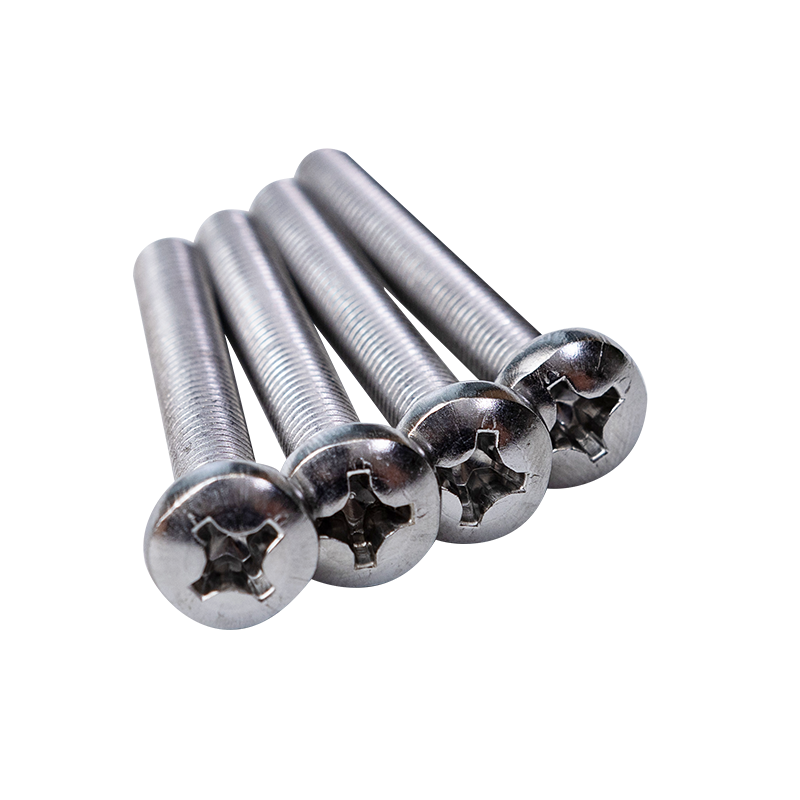Fasteners are often the unseen heroes in construction, furniture, and DIY projects. Among the many options available, stainless steel self-tapping screws are widely used because of their strength, ease of installation, and corrosion resistance. But when it comes to outdoor applications—where screws are constantly exposed to weather, moisture, and sometimes even salt air—are stainless steel self-tapping screws truly suitable? Let’s explore this in depth.
1. What Are Stainless Steel Self-tapping Screws?
Self-tapping screws are designed to “tap” their own thread into materials such as metal, wood, or plastic without the need for a pre-threaded hole. This makes them incredibly convenient for quick installation and secure fastening.
When made of stainless steel, these screws combine the advantages of self-tapping design with the natural durability and corrosion resistance of stainless steel alloys.
Key features include:
Self-threading ability – No need for separate nuts or pre-tapped holes.
Stainless steel construction – Provides excellent resistance to rust and tarnish.
Versatility – Suitable for wood, metal sheets, PVC, and composites.
2. Why Stainless Steel Works Well Outdoors
One of the most important qualities of stainless steel is its ability to resist corrosion. This makes stainless steel self-tapping screws highly suitable for outdoor use.
Corrosion Resistance: Stainless steel contains chromium, which forms a thin, invisible oxide layer on the surface. This layer protects the screw from rusting, even when exposed to rain or humidity.
Longevity: Unlike carbon steel screws that can quickly corrode outdoors, stainless steel screws maintain their appearance and integrity for years.
Weather Resistance: They can withstand sun, wind, and rain without significant degradation.
This combination makes stainless steel self-tapping screws a top choice for decks, fences, outdoor furniture, and exterior cladding.
3. Factors That Affect Outdoor Performance
While stainless steel is an excellent choice, not all stainless steel grades perform equally in outdoor environments.
Grade 304 Stainless Steel: Commonly used, offers good corrosion resistance in most outdoor conditions. Suitable for general construction and household use.
Grade 316 Stainless Steel: Contains molybdenum, which gives it superior resistance to chloride corrosion. Ideal for coastal regions, marine projects, or environments with salt exposure.
Grade 410 Stainless Steel: Harder but less corrosion-resistant. Often used where strength is more critical than rust resistance.
Thus, choosing the right grade depends on the specific outdoor environment.
4. Outdoor Applications of Stainless Steel Self-tapping Screws
These screws are widely used in a variety of outdoor projects:
Deck Construction: Provides a rust-free and long-lasting fastening solution for wood decking.
Fencing: Ensures stability while resisting weather-related wear.
Outdoor Furniture: Maintains a clean, shiny look even with regular exposure to rain.
Metal Roofing and Cladding: Stainless steel self-tapping screws can secure metal sheets firmly, preventing leaks and structural issues.
Marine Projects: With the right grade (316), they are reliable for docks, boats, and seaside structures.
5. Advantages Over Other Fasteners
Why choose stainless steel self-tapping screws over alternatives like galvanized screws or carbon steel screws?
Better Longevity: Galvanized screws have a zinc coating that eventually wears off, leading to rust. Stainless steel, however, resists rust throughout its structure.
Strength and Reliability: They maintain strength under load without flaking or peeling.
Aesthetic Appeal: Stainless steel screws maintain a polished, clean look—important for outdoor furniture or visible structures.
6. Limitations to Keep in Mind
Despite their advantages, stainless steel self-tapping screws are not perfect:
Higher Cost: Stainless steel screws are more expensive than carbon steel or zinc-coated screws.
Potential for Galling: Stainless steel can sometimes seize when tightened too hard, though this can be reduced with lubrication.
Not Indestructible: In highly corrosive environments (e.g., industrial areas with chemicals), even stainless steel may show signs of wear over time.
Still, for most outdoor residential and commercial applications, their durability justifies the cost.
7. Tips for Maximizing Outdoor Durability
To ensure the best performance of stainless steel self-tapping screws outdoors, consider these practices:
Choose the right grade (e.g., 316 for coastal areas).
Avoid mixing metals to prevent galvanic corrosion.
Install properly by using the right tools and torque levels.
Inspect periodically in harsh environments to maintain safety and appearance.
So, are stainless steel self-tapping screws suitable for outdoor use? The clear answer is yes. Thanks to their corrosion resistance, strength, and durability, they are an excellent choice for outdoor projects ranging from decks and fences to roofing and marine structures. By selecting the appropriate stainless steel grade and installing them correctly, you can count on these screws to withstand weather, moisture, and time with minimal maintenance.




 русский
русский Español
Español عربى
عربى italiano
italiano
 No. 2 Bridge, Chuangxin Road, Dainan Town, Xinghua City, Taizhou City, Jiangsu Province
No. 2 Bridge, Chuangxin Road, Dainan Town, Xinghua City, Taizhou City, Jiangsu Province  +86-17315333748(Wechat)
+86-17315333748(Wechat)
 +86-17315333748(Wechat/Whatsapp)
+86-17315333748(Wechat/Whatsapp)

